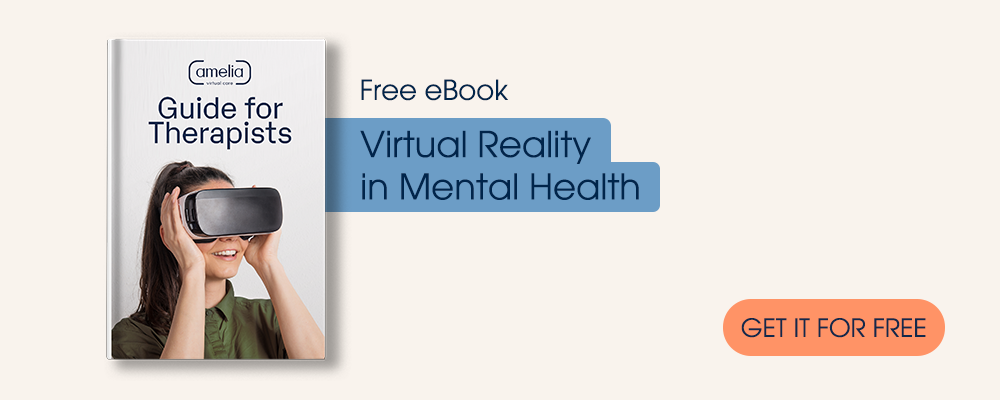World Suicide Prevention Day falls on September 10th, and we at Amelia Virtual Care are keen on promoting further awareness of suicide prevention. When we take action today as mental health professionals, we increase the likelihood that another person lives to see a better future.
This year, Amelia Virtual Care will join organizations and citizens to promote World Suicide Prevention Day on September 10th, 2021.
Suicide is a serious public health problem that has worsened in the last decade. According to the latest 2019 figures released from the Centers for Disease Control and Prevention (CDC), suicide rates have experienced a 33% increase since 1999. This trend does not, however, hold only for the United States. Countries like England and Wales have also reported a higher number of suicides than in past years.
However, the gravity of the problem does not stop there.
The outbreak of the COVID-19 pandemic unleashed a cascade of adverse events that upended mental health services and left individuals perhaps more vulnerable to suicidal tendencies. Some individuals with suicide risks factors, such as an underlying mental disorder, did not have direct or facilitated access to mental care centers at the height of the pandemic. Many individuals experienced higher anxiety and depressive symptoms due to either changes or uncertainty related to financial and professional prospects and a greater sense of loneliness.
Suicide was and is a real threat.
For these reasons, it is more important than ever to mark World Suicide Prevention day. Although suicide can occur due to a myriad of factors, it is still preventable. Mental health care professionals, and even the local citizen, can take steps and use resources to help lower the chance of a person dying by suicide.
In today’s post, we’ll explore some of those resources available and make a mention of how a simple change even in terminology can make all a difference. While literature and tools are vast in this area of mental health, we want you to have at least introductory and supplementary material to get you well on your way to supporting your patients and their families.
Death by Suicide: How Changing the Name Changes the Stigma
To date, many people, including mental health professionals, use the phrase “to commit suicide”. It is a common expression that refers to when a person takes their life intentionally.
“To commit suicide” stems from historical times when canon and later criminal law sought to fight against suicide. The word “commit” is a collocation that oftentimes accompanies the word crime or adultery, both of which hold a moral charge.
However, if we as mental health specialists are to shift the stigma on suicide—with the aim of encouraging people with suicidal tendencies to seek help—we must first change the language that creates that unwanted and outdated paradigm.
Individuals with mental health issues like suicidal thoughts, etc., are not in need of moral judgment. They are people who require proper resources and professional guidance to continue living.
According to the Centers for Disease Control and Prevention (CDC), 12 million American adults seriously had serious suicidal thoughts.
A Summary of Available Resources
- World Health Organization Report on Preventing Suicide – Preventing suicide: A global imperative is the first of its kind from the World Health Organization (WHO) to present a comprehensive overview of suicide, suicide attempts and suicide prevention efforts worldwide. It identifies evidence-based approaches to policy-making and program development on suicide prevention that can be adapted to different settings.
- Preventing Suicide: A Technical Package of Policy, Programs, and Practices – This technical package provides a specific group of strategies based on the best available evidence to support communities and US states in boosting their efforts and focus on prevention activities to prevent suicide.
- Professional Initiatives of Suicide Prevention Lifeline – Suicide Prevention Lifeline provides a vast array of links for mental health professionals to explore for clients who may or may not have attempted suicide or are with suicidal tendencies. In particular, professionals should take a look at the #BeThe1To 5 Action Plan, which gives easy-to-understand, evidence-based advice for those who must communicate with someone who may be suicidal.
Suicide is preventable.
If you or someone you know is considering suicide, please contact the National Suicide Prevention Lifeline at 1-800-273-8255. It provides free and confidential emotional support to people in suicidal crisis or emotional distress 24 hours a day, 7 days a week, across the United States.












